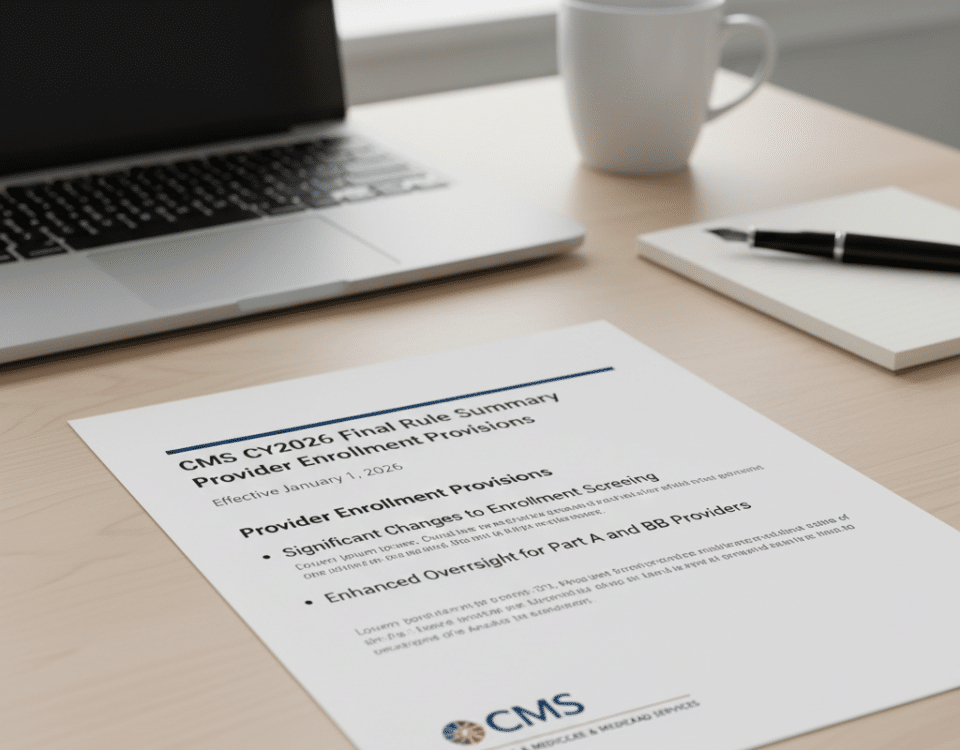By: Tiffani Bouchard, CCS
Managing JW and JZ Modifiers When Billing Single-Dose Drugs
Managing JW and JZ modifiers when billing single-dose drugs can be challenging. As you may know, the Medicare Program has been requiring the use of the JW modifier (Drug amount discarded and not administered to any patient) for some time now. It is commonly understood this modifier is required to report the drug wastage when a separately payable drug or biological is packaged as a single dose vial (single dose package/container), has been used in the treatment of a patient, and the provider discards a portion of the drug not administered.
However, calendar year 2023 saw the implementation of the JZ modifier (Zero drug wasted or discarded and not administered to any patient). This change was published in the CMS Transmittal 12067 (Change Request 13056) dated June 2, 2023 (see link below under Sources). While the JZ modifier was effective and optional for use with claims for dates of service on or after January 1, 2023, it is now required for use with dates of service on or after July 1, 2023. Providers of all types have been faced with challenges in implementing the use of both these modifiers on institutional and provider claims (physicians, independent infusion centers, DME) since one or the other modifier may need to be present depending on the drug or biological being billed.
All providers of service must report the JZ modifier on claims when billing for separately payable drugs under Part B when there is no discarded amount from a single-dose container or single-use package. For the amount administered, the claim line should include the billing and payment HCPCS code describing the given drug, the JZ modifier indicating to Medicare there was no discarded amount and the number of units administered in the units’ field. Remember, the unit(s) billed represents the actual drug dose amount packaged for single use based on the HCPCS code dosage present in the HCPCS description (for example, HCPCS code J9055 Injection, cetuximab, 10 mg).
The Medicare Program Discarded Drugs and Biologicals – JW Modifier and JZ Modifier Policy Frequently Asked Questions (FAQ) (see link below under Sources) informed the provider community, effective for dates of service on or after October 1, 2023, that claims containing HCPCS codes representing “single dose” (single use) drugs and biologicals, may be returned as unprocessable until claims are properly resubmitted. This is occurring for both institutional UB-04 claims (CMS-1450) and professional claims (CMS-1500). The claim editing is causing much grief to staff responsible for billing because a medical record or infusion record has to be reviewed to confirm which modifier is required when the denial is received. Thus, delaying claims processing for payment.
It is prudent you ensure institutional claims (CMS-1450) contain the applicable JW or JZ modifier for a single dose (single use) drug assigned to a drug HCPCS with an OPPS status indicator of “G” (Pass-Through Drugs and Biologicals) or K (NonpassThrough Drugs and Nonimplantable Biologicals, Including Therapeutic Radiopharmaceuticals). For professional claims (CMS-1500), the applicable JW or JZ modifier must be present for all single-dose (single-use) drugs reported on the claim. There is no distinction for payment status for the professional claims. To date, commercial payers are not requiring the use of these modifiers since these are specific to Medicare data tracking for drug rebates.
Over the last few years, Medicare has published a few resources to assist providers, and the Medicare MACs have made various sources available on their website, including Local Coverage Articles. Medicare posted with the FAQ in 2022 a listing of HCPCS codes commonly associated with “single dose” (single use) drugs and biologicals (see link below under Sources). There has been no update to this HCPCS code listing (and it is not all-inclusive) but can be useful to staff responsible for billing and reviewing claims for the use of an applicable modifier. The list can also be used to facilitate system workarounds for the providers. The provider’s staff can identify “single dose” (single use) drugs and biologicals by using the NDC and flagging them for use of a modifier.
The provider’s staff should come together to make the best use of their systems. Consider at which stage of the charge capture and claims preparation process when a JW or JZ modifier will need to be applied. If there are no means to implement an automated process for the use of these modifiers, providers may have to create internal edits to hold claims to allow staff to confirm if a JW or JZ modifier is needed. Implementing a more efficient process prior to claim submission can save time and money that comes with re-working a claim that has been returned as unprocessable. Providers who outsource their claims processing will want to ensure the vendor has established a solid process for submitting the applicable modifiers if they are responsible for appending modifiers prior to billing.
Here are some basic examples for use of these modifiers on the provider’s claim:
Patient required 350 mg dose of Infliximab and the provider purchased four (100 mg single dose vials) = 400 mg. The HCPCS code descriptor dose states 10 mg.
JW Modifier Example
- First claim line is the actual dose administered – no modifier
- Second line discarded, unused or wastage – appending modifier JW
- Document discarded drug or biological in patient’s medical record
Claim HCPCS Claim Units*
- J1745 35
- J1745JW 5
JZ Modifier Example
- Only one claim line is required for the entire single dose administered to the patient
- Medication administration record should reflect the dosage administered
Claim HCPCS Claim Units
- J1745JZ 40
* Units billed may not be reported with decimal points, so the provider will need to ensure a whole number is reported on the claim. Some drugs require the dosage to be based on patient’s weight which can result in a dosage with a decimal and these units will have to be rounded up or down to a whole number. The units for two claim lines will need to represent the total dose amount for the single use drug vial/container/package to avoid potential overpayment.
The importance of reporting the applicable modifier goes beyond the need to submit an accurate claim and avoid delayed claim processing. Providers are reminded Medicare is using this claim billing data to facilitate rebate collection efforts under the Medicare Drug Rebate Program, so all providers have a responsibility to ensure compliance with Medicare billing requirements.
Sources (Updated 2025):
-
Medicare Program Discarded Drugs and Biologicals – JW Modifier and JZ Modifier Policy Frequently Asked Questions (answers most questions about billing – follow guidance for professional / 1500 billing) https://www.cms.gov/medicare/medicare-fee-for-service-payment/hospitaloutpatientpps/downloads/jw-modifier-faqs.pdf
-
Medicare Program Discarded Drugs and Biologicals – JW Modifier and JZ Modifier Policy HCPCS Codes (not an all-inclusive list – if present, however, requires either JW or JZ based on administration) https://www.cms.gov/files/document/jw-modifier-and-jz-modifier-policy-hcpcs-codes.pdf
-
CMS ASP Pricing Files (use ASP file to confirm billing units for HCPCS) https://www.cms.gov/medicare/payment/part-b-drugs/asp-pricing-files
-
NIH National Library of Medicine Dailymed (use to verify if drug NDC is for single use/dose) https://dailymed.nlm.nih.gov/dailymed/index.cfm
- New Claims Modifier Requirement for Drugs and Biologicals from a Single-Dose Container or Single-Use Package https://www.cms.gov/files/document/r12067CP.pdf
- Discarded Drugs and Biologicals – JW Modifier and JZ Modifier Policy HCPCS Codes https://www.cms.gov/files/document/jw-modifier-and-jz-modifier-policy-hcpcs-codes.pdf
- Medicare Program FAQ https://www.cms.gov/medicare/medicare-fee-for-service-payment/hospitaloutpatientpps/downloads/jw-modifier-faqs.pdf
About the Author
Tiffani Bouchard, CSS, has been a healthcare industry consultant for 30+ years. She has been educating industry professionals and providers for almost 15 years on charge capture, coding, billing for drug administration services, and billing for drugs and biologicals. She is currently a subject matter technical writer and webinar presenter for MedLearn Publishing. Bouchard also serves as a technical writer for Coding Essentials for Infusion & Injection Therapy Services.
About the National Infusion Center Association
NICA is dedicated to ensuring that the nation’s infusion centers remain a safe, more efficient, and more cost-effective alternative to hospital settings for consistent, high-quality care.
Infusion providers have a vested interest in the sustainability of the infusion delivery channel and its ability to serve vulnerable patient populations. NICA Provider Members have a voice and a seat at the table to inform NICA’s activities and the opportunity to remain highly engaged in the expansion and optimization of the infusion industry. Learn more about becoming a NICA member here: https://infusioncenter.org/member-partner-page
Is your organization interested in becoming a featured subject matter expert on The Infusion Blog? Email [email protected] to inquire about opportunities for participation.





